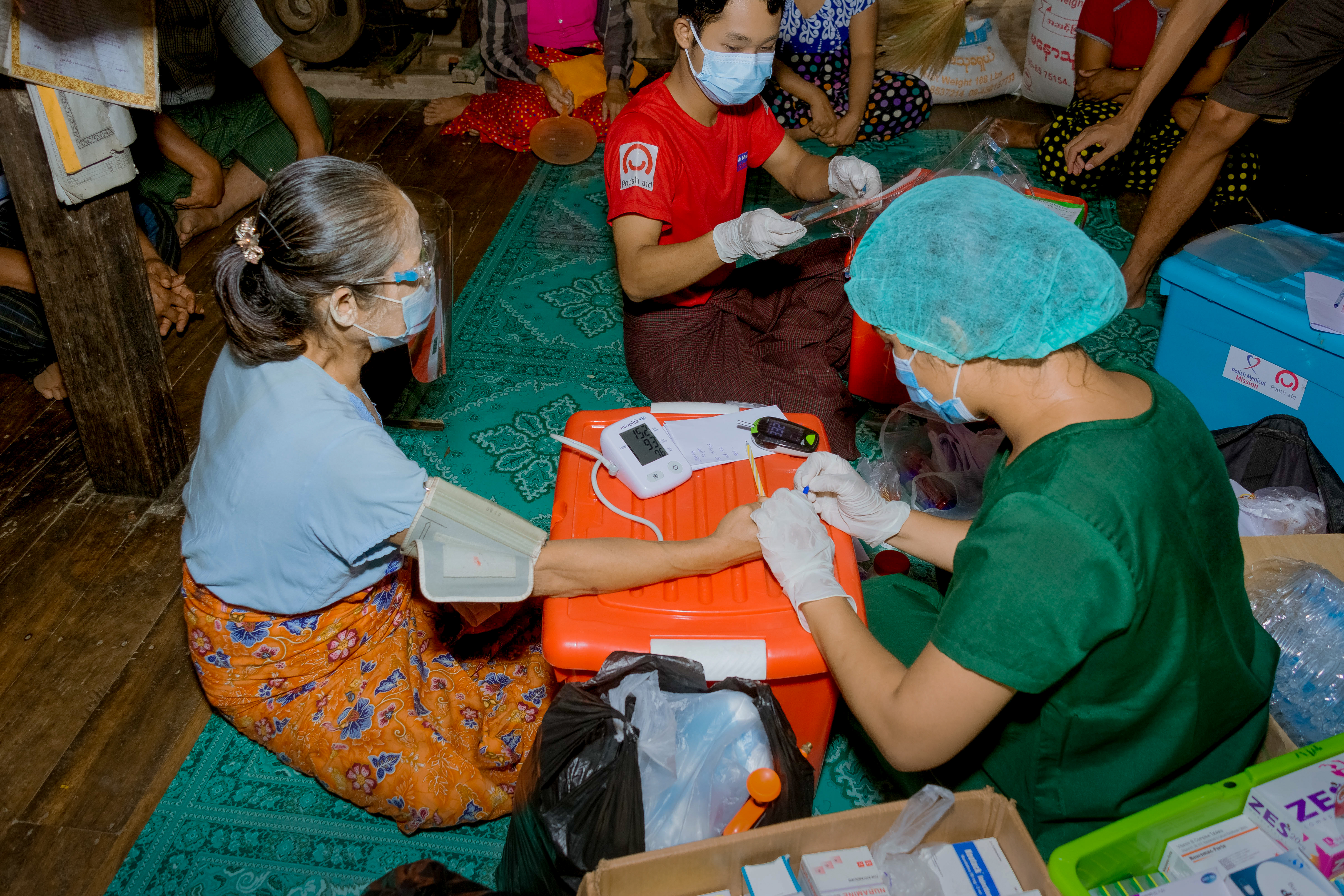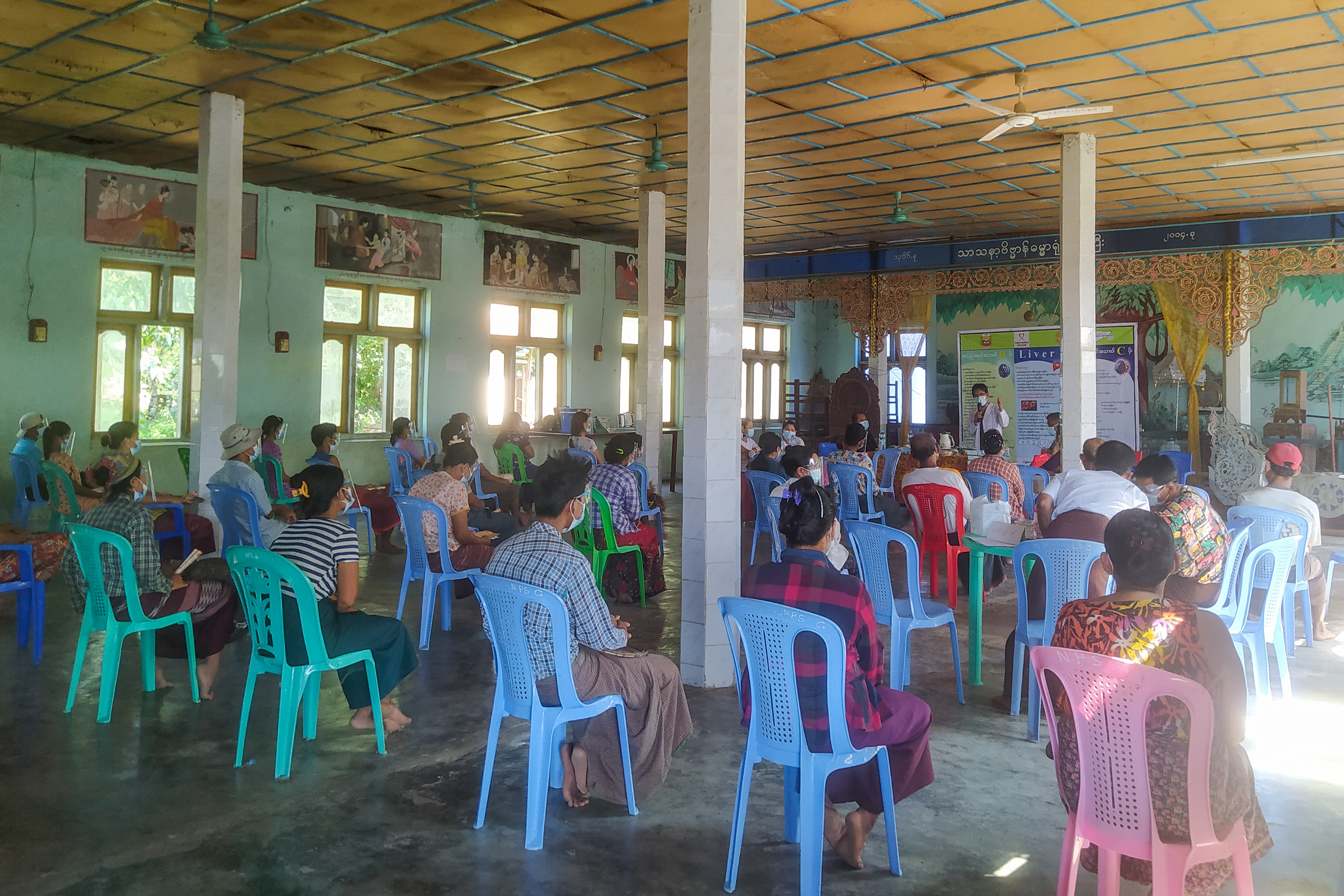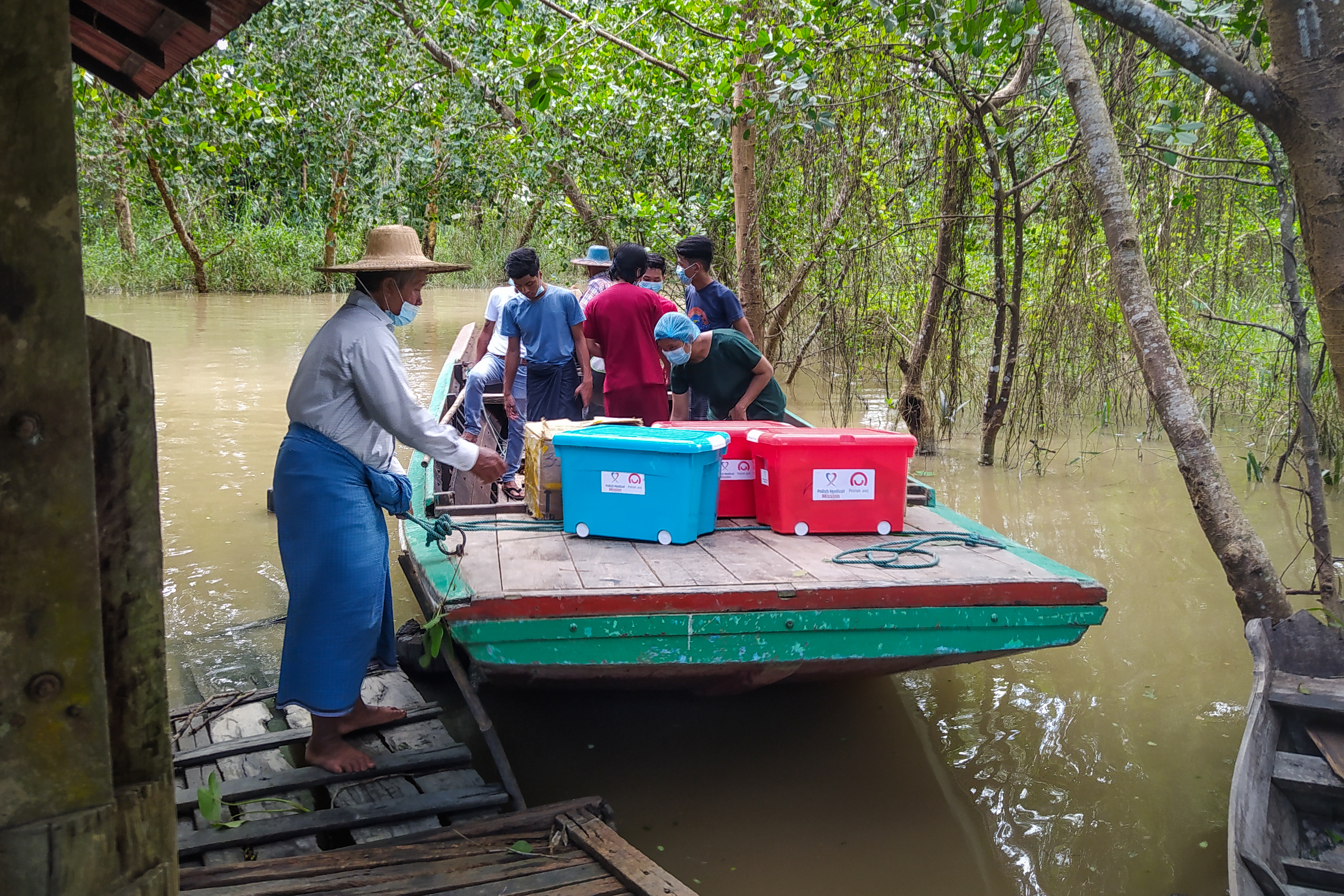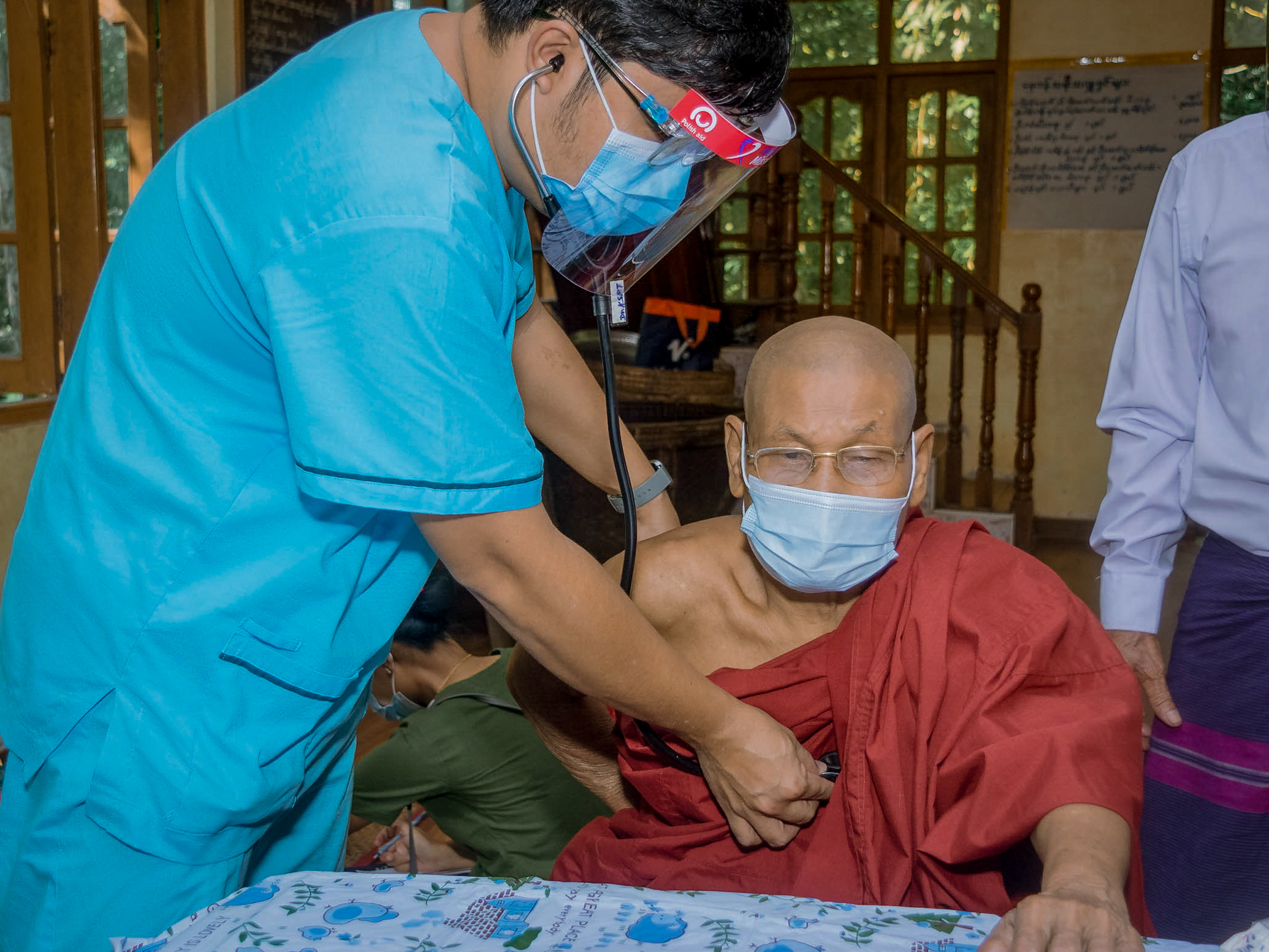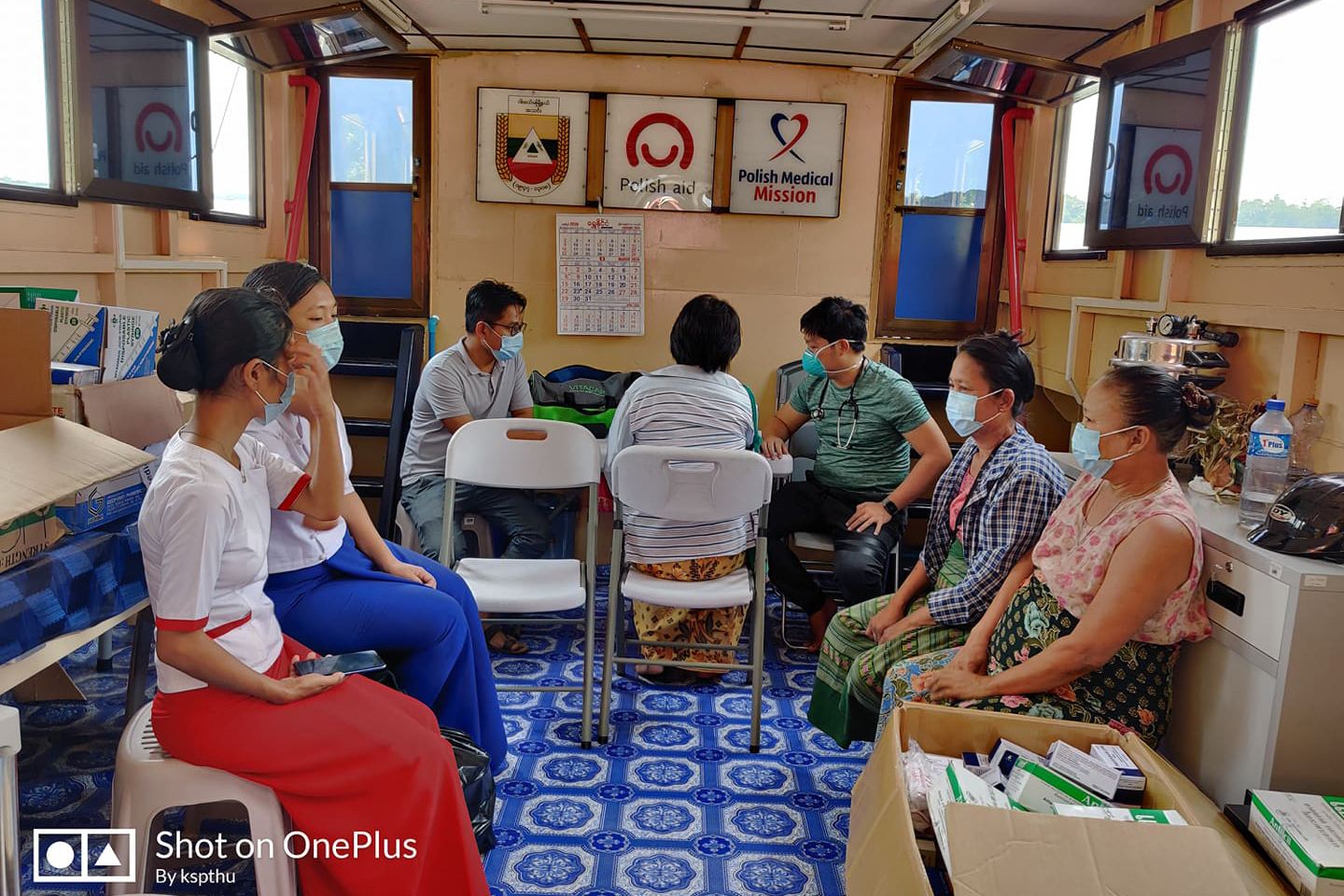Medical and training activities and screening tests in the Irrawaddy Delta in Myanmar
15.02.2021
In 2020, the Polish Medical Mission Association implemented Module II of the two-year project entitled “Myanmar – medical and training activities and screening tests in the Irrawaddy Delta”, thus continuing the cooperation with Wakema Township Association, started in 2016.

As part of the action taken in 2020, a further five rainwater tanks were built in the regions where the biggest problem was accessing clean drinking water. The implemented solutions will improve access to clean water for approximately 2300 people living in the surrounding villages, resulting in a significant increase in living standards and improved health.
The mobile clinic on the boat continued its work started in 2019, and in the times of the coronavirus pandemic and the movement restrictions introduced, it was the only chance to continue the treatment of patients with chronic diseases. A total of 4564 medical consultations were provided in 2020.
According to Dr Ko Ko Lynn – physician and local project coordinator:
Especially during a pandemic, you have to have a special permit for a short journey, even from village to village. These restrictions are needed to control COVID-19, but they make it difficult for local people to access quality health care. Our mobile boat clinic provides treatment in the Wakema district area. By collaborating with the district health and administration department, physicians work in remote villages that are very difficult to reach. This is especially important for patients being treated for hypertension or diabetes who need regular check-ups and medical care. Our mobile clinic and partnership with the Polish Medical Mission enable us to continue their treatment. Without access to medical examinations and medicines, patients suffering from chronic diseases will be the pandemic’s indirect victims.
As part of the project, dental training was also continued with the aim of improving health awareness among children and older schoolchildren. A local dentist trained approximately 500 participants, and topics covered included tooth brushing techniques, the health impacts of untreated cavities and the impact of abusing betel (a popular local stimulant that is chewed and harms teeth). Each participant received an educational booklet in Burmese and a basic oral hygiene starter kit.
Training for Wakema district residents also continued among adults. Module two of the project focused on imparting knowledge on preventing sexually transmitted diseases and civilisation‑related diseases. A total of 523 people attended the meetings, which were held at rural health centres. They were personally conducted by Dr Ko Ko Lynn, who works at Wakema Hospital daily, and who summarised the initiative as follows:
People in developing countries like Myanmar cannot afford to invest in their health, especially to pay for hospital care or specialised medicines. That is why prevention is so important. This is a much cheaper and safer solution. The lives of many people in developing countries are threatened not only by poverty but also by ignorance.
A vital element of the project was the continuation of hepatitis B vaccination for older schoolchildren and families of those infected with the disease. In such a procedure, a test for hepatitis B, hepatitis C, and HIV is always done prior to vaccination. A total of 3478 people were tested during the second module of the project, and 2054 were administered the vaccine. In addition, support has been provided for the Wakema hospital, which serves as an administrative and medical backing for the boat clinic and whose staff will manage the boat once the project is officially completed. The immunoglobulins purchased with Polish funds will be able to be administered to newborns whose mothers are carriers of the hepatitis B virus. Additionally, as part of the project, the hospital laboratory was equipped with blood and electrolyte analysers, and the operating theatre – with a patient monitor and ECG monitor which can be lent to physicians working in the mobile boat clinic if necessary. A dental chair was also purchased and installed in the hospital dental practice. In both rooms – the dental practice and the laboratory – the air conditioning was inspected and repaired, which in local climatic conditions is an essential factor affecting medical staff’s working conditions.
The coronavirus pandemic also affected development projects funded by Polish Aid. Since the first cases of coronavirus emerged in Myanmar, some project funds have been used to support the fight against the disease and purchase personal protection equipment kits, visors and protective masks for medical and support staff in the Wakema district.
Dr Ko Ko Lynn summarised the activities undertaken by the Polish Medical Mission in Myanmar as follows:
Our patients have received access to good quality healthcare, which is crucial, especially when they cannot go to a well-equipped hospital. They can benefit from almost specialist services at the district level! A huge thank you to the Polish Aid and the Polish Medical Mission for their goodwill in such a difficult situation. Your support made our residents feel safer and cared for, and keeps our medical staff and volunteers active.
Prepared by the Polish Medical Mission Association
